The best Wi-Fi extenders in 2025: top devices for boosting your WiFi network
Get Wi-Fi in every room with the best Wi-Fi Extenders
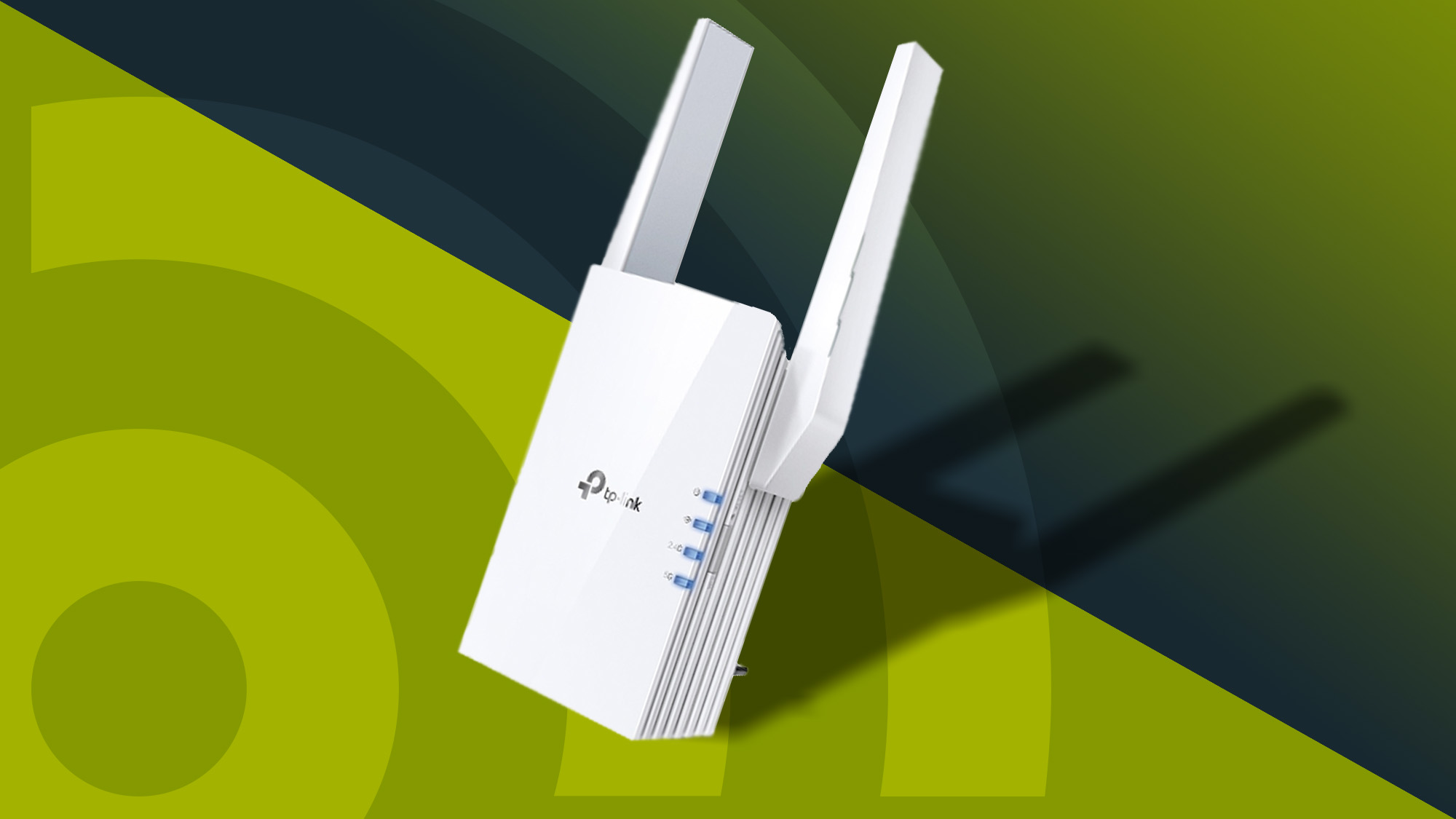
Sign up for breaking news, reviews, opinion, top tech deals, and more.
You are now subscribed
Your newsletter sign-up was successful
Buying the best Wi-Fi extender in 2025 can be tricky - and at TechRadar we're here to help.
The reason it's particularly difficult these days is that thanks to modern Wi-Fi technology (including the relatively new Wi-Fi 7 standard), our wireless networks are covering more of our properties than ever. Meanwhile, the best mesh Wi-Fi routers, which typically comprise of a router and additional satellite units that extend the wireless network, are growing in popularity - and they have become arguably the best way to eliminate network dead zones, a task that Wi-Fi extenders were created for.
This means that many companies no longer make Wi-Fi extenders, focusing instead on releasing new wireless routers or mesh Wi-Fi systems, and that in turn makes trying to find the best Wi-Fi extender for your needs more difficult.
There are still plenty of reasons why you'd need a Wi-Fi extender to help your wireless network reach all corners of your home, however. The best Wi-Fi extenders (also sometimes known as Wi-Fi repeaters) should be easy to add to your existing network - in some cases, you just need to plug in, change a few settings, and you're good to go.
It's certainly a lot less work than replacing your router and setting up a wireless network from scratch. Wi-Fi extenders should also work with your existing network, even if your router is from a different brand.
Wi-Fi extenders are often quite a bit less expensive than buying a new router (and certainly a lot less expensive than mesh Wi-Fi systems), which means they remain a quick and affordable way to make sure every device in your home can connect to the internet, no matter where its placed.
Still, with fewer new models released these days, which Wi-Fi extender should you buy? Our current picks below were all released a few years ago, but they all remain excellent choices, and they are all still on sale. We've also called in more modern Wi-Fi extenders to thoroughly test, and if they prove to be worthwhile, we'll be adding them to this guide in a major update soon.
To help you make the right choice, we've answered the most common questions about Wi-Fi extenders, and our in-depth comparison between Wi-Fi extenders and mesh routers can guide you on which solution suits your needs.
This buying guide was updated on 11/06/2025 with an expanded Q&A section that should answer any questions you have about Wi-Fi extenders.
The quick list
There are still several Wi-Fi extenders on the market in 2025, though many are several years old now, and they all ultimately do the same thing. With that in mind, we've whittled our list down to only the very best options, so you can be assured that you're getting your money's worth. Remember to click "Read more below" to find out more before you hit buy.

Best Wi-Fi extender overall
A fast, affordable 'dead zone killer' that's easy to set up and use straight out of the box, the TP-Link RE700X is basically the best Wi-Fi range extender out there right now.
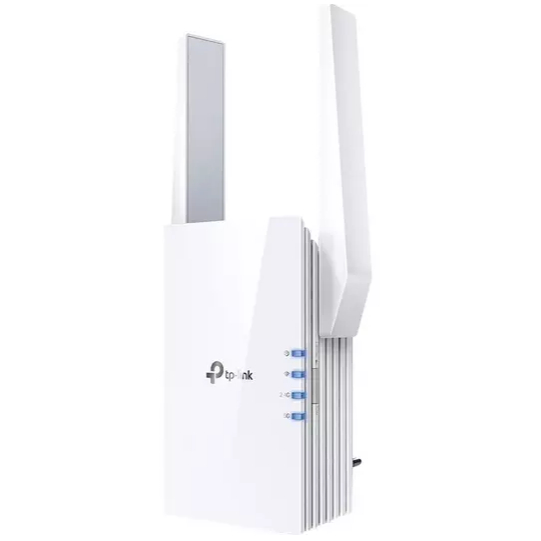
Best budget Wi-Fi extender
If you want to set up your home with Wi-Fi 6 capabilities but don't want to spend a fortune, the RE605X from TP-Link is a solid choice.
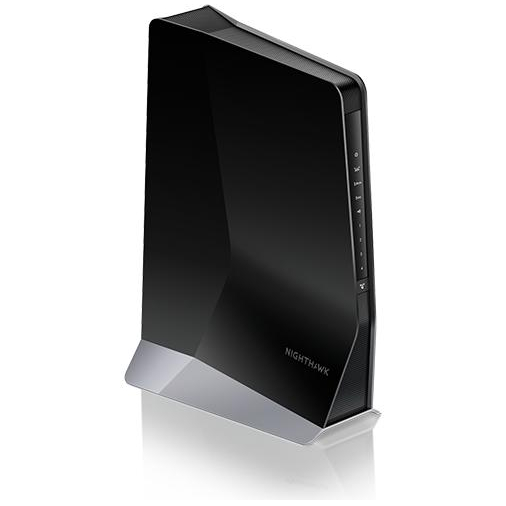
Best for gamers
A sleek and powerful Wi-Fi 6 range extender, this model is a bit on the pricey side, but Netgear's Nighthawk range is aimed at gamers for a reason - this extender offers high speeds and excellent coverage.
The best Wi-Fi extenders in 2025
Why you can trust TechRadar
The best Wi-Fi extender overall

Specifications
Reasons to buy
Reasons to avoid
The TP-Link RE700X is proof that you do not need to spend a lot of money to get great Wi-Fi coverage in every corner of your home. While many Wi-Fi extenders are trying to charge consumers enough money you might as well get a mesh system, this one keeps its price inexpensive by keeping things simple and offering Wi-Fi 6 connectivity on top of it.
Though not loaded up on features, this Wi-Fi 6 support is certainly more than enough when combined with just how effective it is at covering dead spots. Nicknamed the “dead-zone killer," it certainly delivered during testing, covering an area in our space where the weak Wi-Fi signal normally forces us to rely on PowerLine adaptors.
It's also easy and simple to set up, making it a great option for most people, including those who have never even seen a range extender before. You can spend a lot of money on an intimidating range extender, or you can make things easy for yourself and your wallet with the TP-Link RE700X.
Read our full TP-Link RE700X review
The best budget Wi-Fi extender
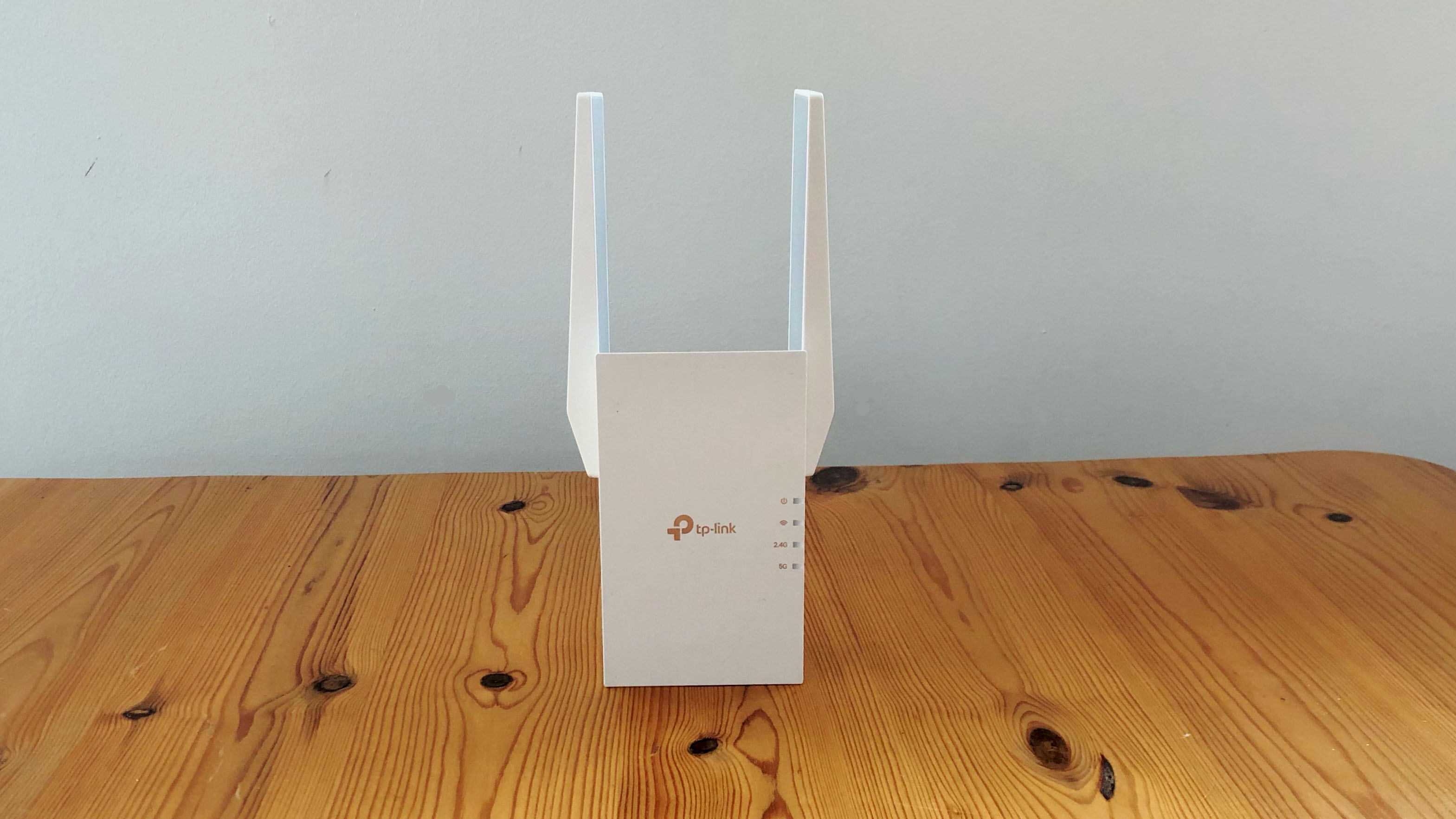
Specifications
Reasons to buy
Reasons to avoid
If you’re looking to extend your Wi-Fi 6 network to all four corners of your home, TP-Link’s RE605X WiFi 6 Range Extender is worth taking a look. It’s as affordable and as easy to set up as the RE650 extender while being backwards compatible with older Wi-Fi 5 routers. If you've got a new Wi-Fi 7 router, then the RE605X will still work, though will only offer Wi-Fi 6 speeds.
We found during testing that TP-Link’s Tether app does a good job of keeping setting up simple, making this a great option for Wi-Fi extender newbies. It isn’t just for the less savvy users, however. The RE605X also provides a web browser interface for more experienced users who want more control over their network settings.
It’s also proven to deliver noticeable improvement in Wi-Fi performance. On test, it boosted our router’s speed to 100Mbps from 34Mbps on the 2.4GHz and from 85Mbps on the 5.0GHz bands in the poorly connected part of our space. Our stream downloads saw a marked improvement as well.
Read the full TP-Link RE605X WiFi 6 Range Extender review
The best Wi-Fi extender for gamers
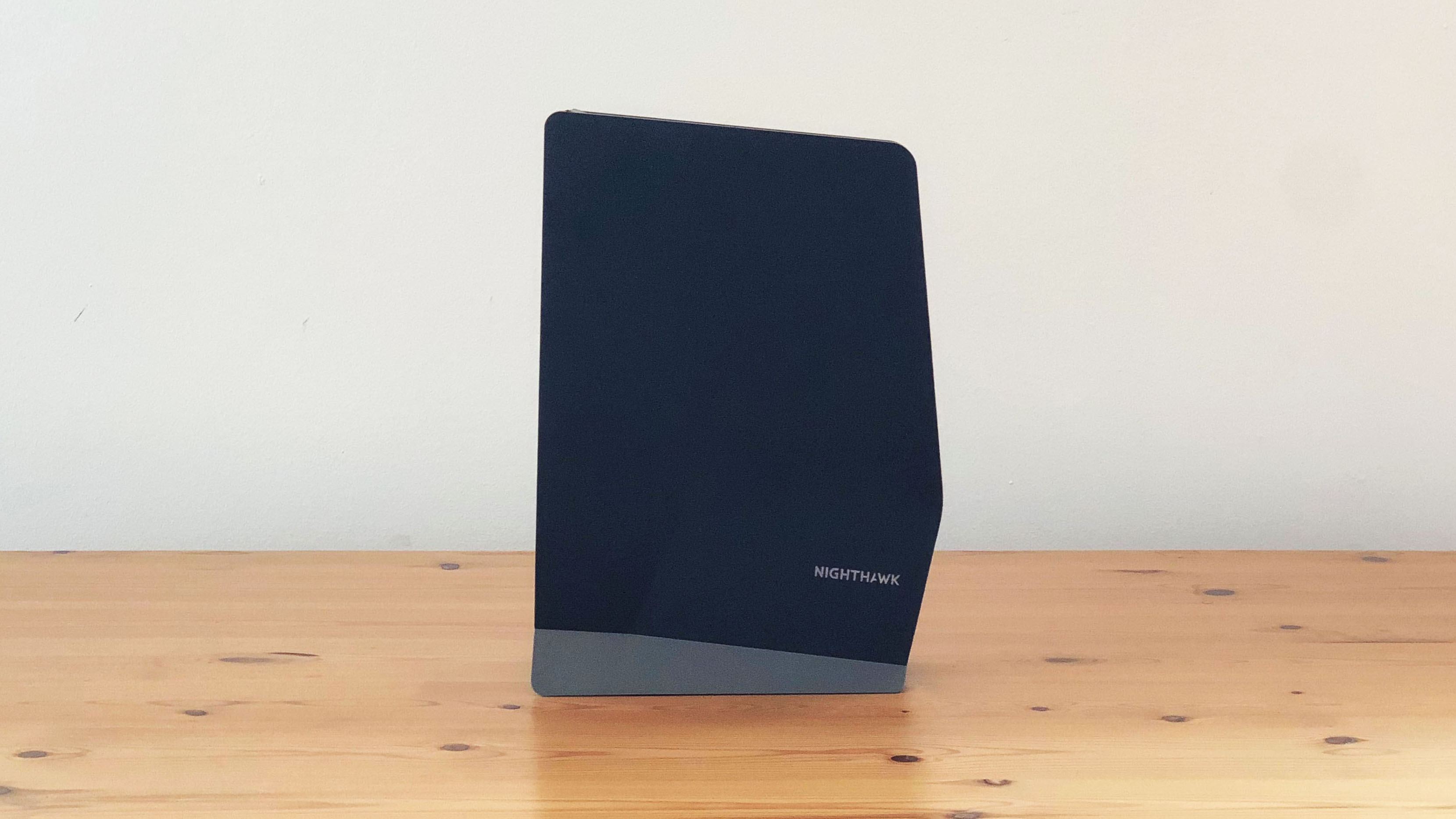
Specifications
Reasons to buy
Reasons to avoid
The Netgear Nighthawk AX8 (EAX80) may be a little older, but with Wi-Fi 6 capabilities and an impressive range, it certainly deserves a spot in this best Wi-Fi extenders list. It's a little on the pricey end, but it's not really for people who are on the budget anyway, as it's more of an investment for those who require top-notch performance and massive coverage.
It boasts some features you typically see in actual routers such as four Gigabit Ethernet ports for connecting a games console and a USB 3.0 port for connecting a hard drive to provide network storage. It also has mesh extender capabilities, which means you can buy additional EAX80 extenders and link them together to create an enormous mesh network.
On test, its performance will blow you away. Performance on the slower 2.4GHz band jumped from our usual 18Mbps to 21Mbps. Meanwhile, the faster 5.0GHz band really got a shake-up, leaping from just 60Mbps to 342Mbps. This isn't going to be the best Wi-Fi extender for most people, but it's amazing for those with massive homes and offices to cover.
Read our full Netgear Nighthawk AX8 (EAX80) review
Get the best deals on Netgear products with our Netgear promo codes.
Frequently asked questions
How to choose the best WiFi extender for you
You want to make sure that your Wi-Fi extender is speedy enough to give you the kind of solid connection you need. That means at least a wireless standard of 802.11ac, the default on most current routers. And, if you want to future-proof, consider one with Wi-Fi 6, the successor to 802.11ac.
There are also some Wi-Fi extenders which support the newer Wi-Fi 6E protocol, and we'll be adding some of those to this guide soon. There's also Wi-Fi 7, which is slowly becoming more popular, and there are some models, such as the Asus RP-BE58, which offer Wi-Fi 7 support, so if you really want to future-proof your wireless network, then check them out - though you'll be paying a lot more for this technology.
Installation and setup is always a concern, so look for one that’s easy to connect to your existing network. And, make sure that it has the ports you need if you’re hoping to connect something that needs a physical connection like an older computer.
If you plan on expanding beyond one extender – maybe you need it for a large business – then consider a mesh extender as you can add additional units that will automatically find the best signal route for you. On that note, consider your budget. Mesh Wi-Fi systems are expensive. But, if you need more than one extender or need to replace the router as well, getting a Mesh Wi-Fi router will be more cost effective in the long run.
What's the best Wi-Fi extender for a home office?
If you work from home, having a fast and dependable Wi-Fi network is essential, and Wi-Fi extenders can make a huge difference if your home office is situated far away from your main modem or router.
If your main concern is getting a Wi-Fi signal to your home office, then any of our picks in our best Wi-Fi extender buying guide will do the trick. However, if you have the budget, it's worth looking at getting a Wi-Fi extender that supports Wi-Fi 7, the latest Wi-Fi tech, such as the TP-Link RE225BE BE3600 WiFi Extender Booster. Wi-Fi 7 offers a number of features that can boost your wireless network. For example, it has a wider bandwidth over the 2.4-GHz, 5-GHz, and 6-GHz bands, which means a lot more network traffic can run through your network. This is particularly useful for home offices which share a Wi-Fi network with lots of other devices, as it should mean your network isn't congested (think of wide highway lanes full of cars compared to single-lane country roads), so network speeds remain fast and stable.
Other Wi-Fi 7 features include MLO (Multi-Link Operation), which allows devices to send and receive data over multiple bands at once, rather than just sticking with a single band. This improves the stability of the network connection, while reducing latency and increasing the amount of data that can be sent and recieved, all of which can benefit people working from home. Wi-Fi 7 extenders are also backwards compatible, so you don't need a device to have Wi-Fi 7 to connect to the extender, though to get the most out of its features, it'll need Wi-Fi 7. Luckily, an increasing number of laptops, phones, tablets, and more are coming out with Wi-Fi 7 support.
If a Wi-Fi 7 extender is out of your budget, then one that supports the slightly older Wi-Fi 6E is worth considering instead.
What's the best Wi-Fi extender for streaming 4K video?
Many video streamers, especially Disney+ and Netflix, offer 4K video streams that now feature Dolby Vision HDR and Dolby Atmos spatial soundtracks, and while the increase in quality is great for movie and TV buffs, the additional data that's needed to stream can put a real burden on your home network, especially if you live in a household with multiple people streaming to various different devices.
So, if you're looking to use a Wi-Fi extender to ensure your smart TVs, set top boxes, consoles and other streaming devices all have an internet connection no matter where they're placed in your house, I would recommend looking for a Wi-Fi extender with Wi-Fi 6E or Wi-Fi 7 support.
Both of these technologies offer faster speeds, and most importantly have more bandwidth, allowing for more data to be passed through at once. This is especially important when multiple devices are streaming video at the same time, as it ensures that the network doesn't get congested, which could lead to the quality of the video being lowered, or experience the dreaded buffering, where the video is paused while the device waits for more data to resume playback.
You'll also want to make sure that the Wi-Fi extender you buy isn't the weak link in your home network, and is able to extend the network traffic without causing a bottleneck, otherwise devices using the Wi-Fi extender could suffer.
One thing to keep in mind is that, currently, there are no smart TVs which support Wi-Fi 7, and few set top boxes and consoles (apart from the PS5 Pro) have Wi-Fi 7 support, which means you could save some money by going for a Wi-Fi 6E extender, which uses the older, more widely adopted wireless technology. Having said that, buying a Wi-Fi 7 wireless extender is more future-proof, and there will likely be more devices coming that support the latest wireless technology. It's also worth considering that while your media streamer might not support Wi-Fi 7, other devices, particularly phones and tablets, often do, and even if you don't use those to stream 4K video, they can make use of Wi-Fi 7-exclusive features, helping to reduce overall congestion in your network.
What's the best Wi-Fi extender for a large house or multi-storey home?
For a long time, Wi-Fi extenders were the best solution for people in large homes, as they help amplify and extend your Wi-Fi network beyond what a single router can manage. For many people, the router is installed near where your internet connection enters your home, and this isn't always a convenient or central place, which can lead to some far-off corners of your home not getting any Wi-Fi.
Wi-Fi extenders can help, as when they are placed at the edge of your existing network, they can then expand the network to reach previously unreachable parts of your home. Any of the picks in our best Wi-Fi extenders buying guide can help.
However, a relatively new category of device, known as mesh routers (or mesh Wi-Fi systems), are becoming increasingly popular, and use a similar concept to widen your wireless home network.
Mesh Wi-Fi systems are usually comprised of at least two units: a router that plugs into your modem, and a satellite unit that is placed elsewhere in your home. The router and satellite connect to each other via a dedicated wireless connection known as a 'backhaul'. This allows the satellite to broadcast the same Wi-Fi network, spreading the coverage further.
Meanwhile, as it's the same Wi-Fi, your devices will all connect using the same password, and they should automatically connect to the nearest satellite (or the router itself) seamlessly. Many mesh Wi-Fi systems can come in various packs, with additional satellites included for larger properties. If you're looking to upgrade your router as well, then check out our best mesh Wi-Fi systems guide for buying advice and our top picks.
As a general rule, mesh Wi-Fi systems cover between 2,000 to 5,000 square feet, which is a lot bigger than what a single Wi-Fi extender can manage. So, if you don't need that kind of coverage, a Wi-Fi extender is a more affordable choice. However, for larger homes that require wider Wi-Fi coverage, a mesh router system will be a better choice, rather than buying multiple Wi-Fi extenders. Many powerline adapters, like the Devolo Magic 2 Wi-Fi 6, are able to broadcast Wi-Fi, which means you can circumnavigate thick walls and expand your wireless network.
What's the best Wi-Fi extender for thick walls?
Even though Wi-Fi technology has continued to progress over the years, the more walls you have between your router, which broadcasts your Wi-Fi network, and the device you're using to connect to the Wi-Fi network, the weaker the signal can get. This can be further exacerbated if the walls in your home or office are particularly thick.
Wi-Fi extenders are a great choice if you find some devices struggle to get Wi-Fi because of thick walls, as you can place them where the wireless signal from the router begins to weaken, boosting the signal beyond further walls. If your walls are particularly thick, it is worth investing in a Wi-Fi extender with the most modern technology (currently Wi-Fi 7), as these extenders offer stronger and more reliable Wi-Fi signal which gives them a better chance at broadcasting through thick walls.
Another alternative are powerline adapters. These handy devices use the mains power in your home to transmit network data, as well as electricity. Because the network data travels via the electrical wires in your home, the thickness of your walls won't make any impact, though the distance between adapters and age of the wiring in your property can be a factor.
What's the difference between a Wi-Fi booster and a Wi-Fi extender?
Wi-Fi extenders, also known as Wi-Fi boosters or repeaters, are largely the same thing under a different name. If you have areas of your home where your current wireless internet cannot reach, they're the perfect piece of kit to boost your existing signal.
They're typically easy to use and set up, with most simply plugging into an available AC outlet in your wall, though some can resemble a stand-alone router.
Naming conventions appear to be a branding decision, but there are a few different ways that Wi-Fi extenders work. The most common is that your booster or extender houses two wireless routers, much like the wireless router you already have at home, or in your place of work. One of these wireless routers picks up the existing Wi-Fi network and then passes that to the secondary router which transmits the boosted signal.
It's worth noting that many Wi-Fi extenders broadcast on a new Wi-Fi network with its own name, so you'll need to connect to a different Wi-Fi signal depending on where you are in your home. As most devices will automatically connect to a trusted signal, this isn't likely to cause too much of an issue.
How do I know if I need a range extender or a router?
There are a few things to consider when trying to diagnose your internet woes and deciding between replacing your router or simply adding an extender. If you’re having trouble with getting a solid connection regardless of how close you are to the router or how many devices are connected to it, chances are adding an extender won’t help. That poor quality connection won’t get any better; it just will have a larger range.
Getting a newer wireless router is a must in that case since the connection itself will only improve with a better device at the heart of your network. Upgrading the router to a newer one that can handle more devices or has Wi-Fi 6 support will also be the better way to go if you have a slow connection.
So, when should you buy a Wi-Fi extender? If your router is capable enough and is just not reaching where you want it to, a Wi-Fi extender is a great solution. A connectivity issue within your home or office that's related to the router's actual reach might be better resolved with one of the best Wi-Fi extenders because it’s more cost-effective than replacing your whole router.
In other words, if some of your devices are getting a good connection or the internet gets better the closer you are to the router, save some money and add an extender. Maybe you want your network to cover a couple of floors of a house or building, but some rooms are just not getting a signal. An extender is the perfect solution as it will take the existing signal, strengthen it and extend its reach so that you can access it or get a better connection where you couldn’t before.
It’s also important to consider the price. Wi-Fi extenders can get pricey if you want some of the newest models, especially those that offer Wi-Fi 6 technology. However, companies like Netgear and TP-Link offer very affordable Wi-Fi extenders to help increase coverage across whatever area you need a boost in. The cheaper options obviously won’t have as many bells and whistles but will work great for streaming content or loading webpages.
How we test
TechRadar tests Wi-Fi extenders in a variety of ways, from how easy they are to connect and setup, what apps or software they might come with, and of course, how much increase you get to the range of your wireless internet.
Features will be noted, we check to see if Wi-Fi 6, Wi-Fi 6E or Wi-Fi 7 are supported, as well as if they're able to connect to any existing router and if the products are Dual-band or Tri-band compatible. As a Wi-Fi extender is designed to support an existing router, and not act as a dedicated router in itself, you'll likely want to check if your wireless router isn't up to scratch before you spend serious money on an extender.
A series of benchmarks are used to determine how effective a Wi-Fi extender is, using applications like the Ookla Speed test and the Steam game download client to test how many megabytes per second of data is achievable in different locations of a home, such as right beside the extender itself and behind partition walls that could block a signal.
Sign up for breaking news, reviews, opinion, top tech deals, and more.

Matt is TechRadar's Managing Editor for Core Tech, looking after computing and mobile technology. Having written for a number of publications such as PC Plus, PC Format, T3 and Linux Format, there's no aspect of technology that Matt isn't passionate about, especially computing and PC gaming. He’s personally reviewed and used most of the laptops in our best laptops guide - and since joining TechRadar in 2014, he's reviewed over 250 laptops and computing accessories personally.
- Christian GuytonEditor, Computing
- John LoefflerComponents Editor